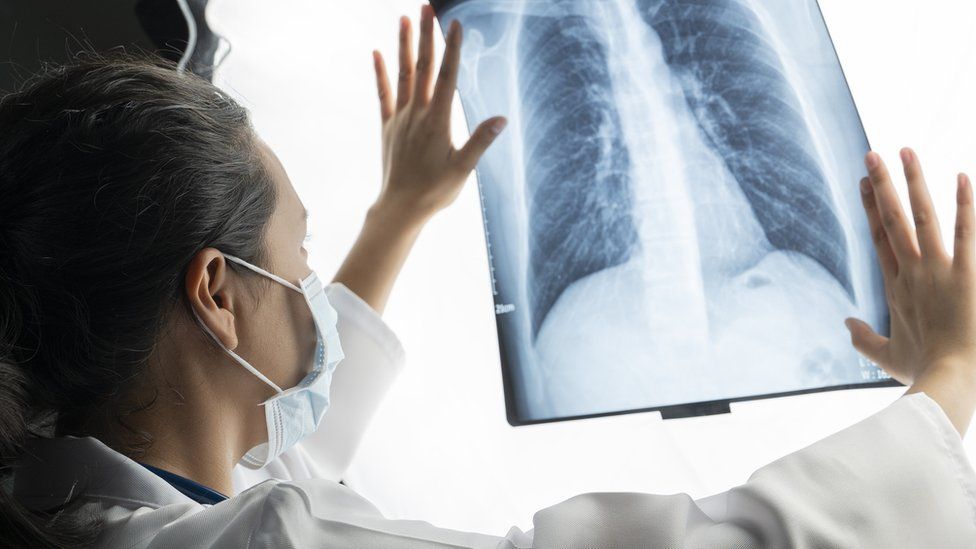 Getty Images
Getty ImagesResearchers believe artificial intelligence could help ease hospital pressures by cutting diagnosis times for lung diseases.
The technology – developed by the University of the West of Scotland – was originally created to quickly detect Covid-19 from X-ray images.
They say it can also identify a range of different lung diseases like tuberculosis and pneumonia.
They are now looking at whether it can be used to detect cancers.
The app can diagnose patients in a matter of minutes with an accuracy of around 98%.
Researcher Prof Naeem Ramzan said: “Systems such as this could prove to be crucial for busy medical teams worldwide.”
- The latest headlines from Scotland
Tuberculosis and pneumonia often require a combination of tests like CT scans, blood tests, X-rays and ultrasounds to diagnose.
But these tests can be expensive and time consuming.
Prof Ramzan told BBC Scotland that in normal circumstances, diagnosis can take weeks depending on the radiologist’s availability.
“But in most cases, the app can produce results in a minute so treatment can be started as soon as possible,” he said.
The technology uses X-rays, then compares the scans to a database of thousands of images from patients with pneumonia, tuberculosis and Covid.
It then uses a process known as deep convolutional neural network, an algorithm typically used to analyse imagery, to make a diagnosis.
Researchers at the institution are now looking into using the technology to detect other diseases using X-ray images like cancer.
“X-ray imaging is a relatively cheap and accessible diagnostic tool that already assists in the diagnosis of various conditions, including pneumonia, tuberculosis and Covid-19,” said Prof Ramzan.
“Recent advances in AI have made automated diagnosis using chest X-ray scans a very real prospect in medical settings.”
However, the new technology could take up to a year to be approved for wider use.
Prof Ramzan added: “We would like to roll it out worldwide and make it freely available to anyone who would like to use it, either in the NHS or abroad as well.”
He said it is already used for diagnosing Covid-19 in some rural areas of Pakistan.
